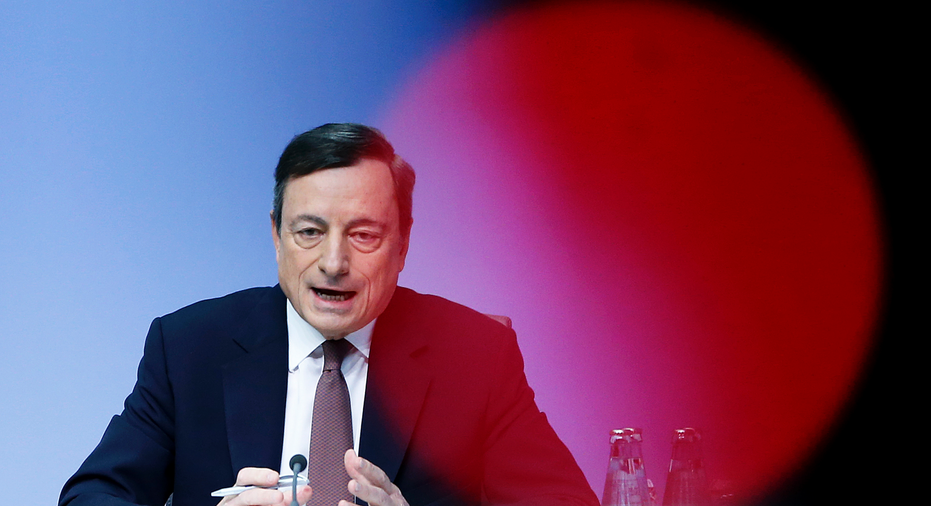Market fits highlight central bankers' difficult task

FRANKFURT, Germany – Sharp moves in bond and foreign exchange markets have underlined the challenge that Europe's top central bankers face as they prepare investors for the day when they will start to phase out policies that have supported the economy through financial crises and political uncertainty.
European Central Bank head Mario Draghi's statements this week about a "firming and broadening" economic recovery and a "prudent" and "gradual" withdrawal of stimulus were taken as a sign the bank was going to phase out its measures faster than expected. It sent the euro and bond yields suddenly higher for two days, an indication investors expect higher rates.
Similar market jitters surrounded comments by Bank of England Governor Mark Carney the day after, and on Thursday the euro, pound and bond markets were still broadly buoyant.
The euro was up 0.2 percent at $1.1401, the highest in 14 months and up more than 2 cents since the start of the week. The pound has gained almost 3 cents this week, to trade at $1.2977. And the yield on the 10-year German government bond at 0.44 percent is up sharply from 0.24 percent last week, though below levels seen in March.
The market volatility recalled the so-called "taper tantrum" of 2013, when markets reacted sharply to remarks by U.S. Fed Chairman Ben Bernanke about the eventual reduction, or tapering, of a stimulus program involving the purchase of government bonds using newly printed money. The Fed eventually did end its bond purchases and moved to raise its key interest rate. But that took a long time — the first hike came only in December, 2015, after which it waited an entire year before moving again, such was the market's sensitivity to higher rates.
The ECB's stimulus involves a similar program to that of the Fed, purchasing 60 billion euros ($68 billion) per month in bonds.
The market moves underline the wide-ranging effects that an eventual end to bond-buying by the ECB will have, as would an interest rate increase in the U.K. An end to bond purchases should send bond prices down, as a major buyer, the ECB, exits the market. Longer-term borrowing costs — for governments, for instance, or for people with new mortgages — would rise. Stocks and other riskier investments might become less attractive relative to safer holdings such as bank CDs.
Analyst Carsten Brzeski at ING-DiBa said Draghi's remarks did not contain a major shift in the bank's stance. "This is not a taper tantrum yet. I think markets got slightly carried away with themselves."
But he said the sudden euro jump was "a warning to the ECB that preparing markets is a hard job to do."
Analysts think that the ECB will give a clearer idea about its plans to ease off its bond-buying stimulus at its Sept. 7 meeting, start reducing the purchases in January, and end them before or at the end of 2018. They say the benchmark interest rate, which is at zero to help make lending cheap, will be raised only after that, meaning not until sometime in 2019.
Jane Foley, head of foreign-exchange strategy at Rabobank, said the sudden jump in the euro may also reflect more positive sentiment about the eurozone's political and economic prospects relative to the United States. Earlier in 2017, the euro was plagued by fears that anti-euro, right-wing populists such as France's Marine Le Pen might come to power, while the dollar was boosted by expectations that new U.S. President Donald Trump would engage in more infrastructure spending and tax cuts. Those expectations have shifted in the euro's favor after Le Pen was defeated for president by pro-euro Emmanuel Macron, and after hopes that Trump might act quickly have faded.
Draghi's remarks about a strengthening recovery "weren't in any way or form outwardly hawkish... and yet that was the markets interpretation. And that suggests to me there is a lot of bias out there for the euro... partly because of the improved political backdrop in Europe but it's also disappointment with the dollar."
Markets were already leaning in favor of the euro and "probably read a little more into Draghi's comments than he intended to say," she said.



















